I will demonstrate the rich physics we can learn from X-ray astronomy by highlighting two astrophysical systems with dramatically different size scales. On a large scale of a mega parsec (1 parsec = 3.26 light years), the X-ray emitting hot intracluster medium (ICM) of galaxy clusters is shock heated by the accretion of infalling materials. I will present theoretical models and the predicted X-ray signatures of the non- equilibrium ICM including electron-ion non-equipartition and non- equilibrium ionization (NEI) physics. On a small scale close to the accretion radius of the M87 supermassive black hole (~100 parsec), hard X-ray emission above 10 keV from its unresolved X-ray core has been detected, for the first time, with the NuSTAR X-ray Observatory. I will discuss our observational findings along with the origin of the X-ray emission, which is more likely to come from its relativistic jet rather than the accretion flow.
Events Calendar View
-
Special Colloquium
Feb 26, 2019
High Energy X-ray Astrophysics
-
Special Colloquium
Feb 28, 2019
Accretion Disks From Black Holes to Planets
From powering the supermassive black holes in the centers of galaxies to forming the building blocks of planets and planetary systems, accretion disks are ubiquitous throughout the universe. Given this prevalence and parallel advances in computational astrophysics and observational capabilities, now is the quintessential time to understand how these complex systems work in their various guises. In this talk, I will present my vision for combining observational and theoretical tools to answer key questions related to both protoplanetary disks and high-energy disks around black holes. I will begin with an overview of accretion theory, describing the angular momentum transport problem in astrophysical disks, and how I am using sophisticated numerical simulations to solve this issue. I will then put this problem within the context of planet formation by describing how I am using numerical simulations as well as observations with the Atacama Large Millimeter/submillimeter Array (ALMA) to test current models and build a new paradigm for protoplanetary disk evolution. Finally, I will discuss theoretical work on the formation of planetary building blocks, called planetesimals, within the gas disk environment implied by observations and how the predicted properties of these planetesimals compare with those observed in the asteroid and Kuiper Belt planetesimal populations.
-
Special Colloquium
Mar 5, 2019
Feeding and Feedback in the Interstellar Medium
Ongoing star formation in galaxies is mediated by the balance between feeding -- the accretion of new material from outside -- and feedback -- the energy and momentum injection from stellar processes -- in the interstellar medium. The ISM consists of three distinct gaseous phases, requiring different observational techniques to understand each phase. Modelling the multi-phase ISM requires capturing a wide range of scales and energy injection and transport processes, a task that is becoming feasible with modern (magneto)hydrodynamic simulations. I will present numerical simulations and observations of the ISM in the Milky Way and its environs tracing these feeding and feedback processes. I find that the gas microphysics keeps the ISM in the pressure regime in which all phases can coexist independent of any self-regulation processes changing the star formation rate. Feedback establishes pathways through which ionizing photons can travel from midplane O stars out of the disk, making diffuse warm ionized gas a natural consequence of star formation. On the feeding side of the star formation cycle, magnetic fields likely enable infalling gas to reach the plane and potentially contribute to ongoing star formation.
-
Special Colloquium
Mar 7, 2019
Why do galaxies stop making stars?
It has long been known that many massive galaxies in today's Universe show low or vanishing levels of star formation activity. Several promising explanations have been proposed that explain these observations, but a number of theoretical puzzles remain. In particular, the theoretical challenge has deepened with recent observations of passive galaxies at earlier times when the Universe was merely a few billion years old. At such early times, strong gas accretion from the cosmic environment, as predicted by cosmological simulations, should have sustained a vigorous star formation activity. I will discuss recent insights based on ultra-high resolution, cosmological simulations and present evidence that the star formation activity is dictated both by processes operating within galaxies as well as by their cosmological environment. This new perspective aligns well with recent empirical approaches and clarifies the role of internal and external processes in regulating star formation in galaxies.
-
Observatory Open House
Mar 8, 2019
Observatory Viewing
There will be two shows with the first starting at 8:00pm and the second starting at 8:30pm
Because of the limited space in the dome, you must have a reservation to come to this showing. We will begin taking reservations for this viewing on Tuesday, February 12th at 1:00pm with our online reservation system.
The observatory is located at the top of the Physics building. To get to the observatory take the elevator to the 4th floor. A guide will meet you on the 4th floor and direct your group to the stairway that leads to the observatory. As the weather can be unpredictable, we might not know whether a viewing will be possible until shortly before the event begins.
If you need more information please call 706-542-2485.
Related: The UGA Observatory Schedule
-
Departmental Colloquium
Mar 14, 2019
Statistical Learning in Modern Physics
The rapid advance in science and technology in the past decade brings an extraordinary amount of data that were inaccessible just a decade ago, offering researchers an unprecedented opportunity to tackle much larger and more complex research challenges. The opportunity, however, has not yet been fully utilized, because effective and efficient statistical and computing tools for analyzing super-large dataset are still lacking. One major challenge is that the advance of computing technologies still lags far behind the exponential growth of database.
In this talk, I will present an emerging family of statistical methods, called leveraging methods to facilitate scientific discoveries using limited computing resources. Leveraging methods are designed under a subsampling framework, in which one samples a small proportion of the data (subsample) from the full sample, and then performs intended computations for the full sample using the small subsample as a surrogate. The key to the success of the leveraging methods is to construct nonuniform sampling probabilities so that influential data points are sampled with high probabilities. These methods stand as a unique development of their type in big data analytics and allow pervasive access to massive amounts of information without resorting to high-performance computing and cloud computing.
Page 91 of 121, showing 6 records out of 723 total, starting on record 541, ending on 546


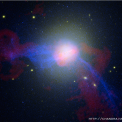
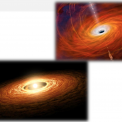
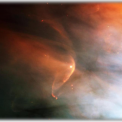
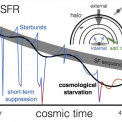
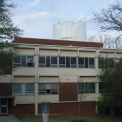
.jpg)